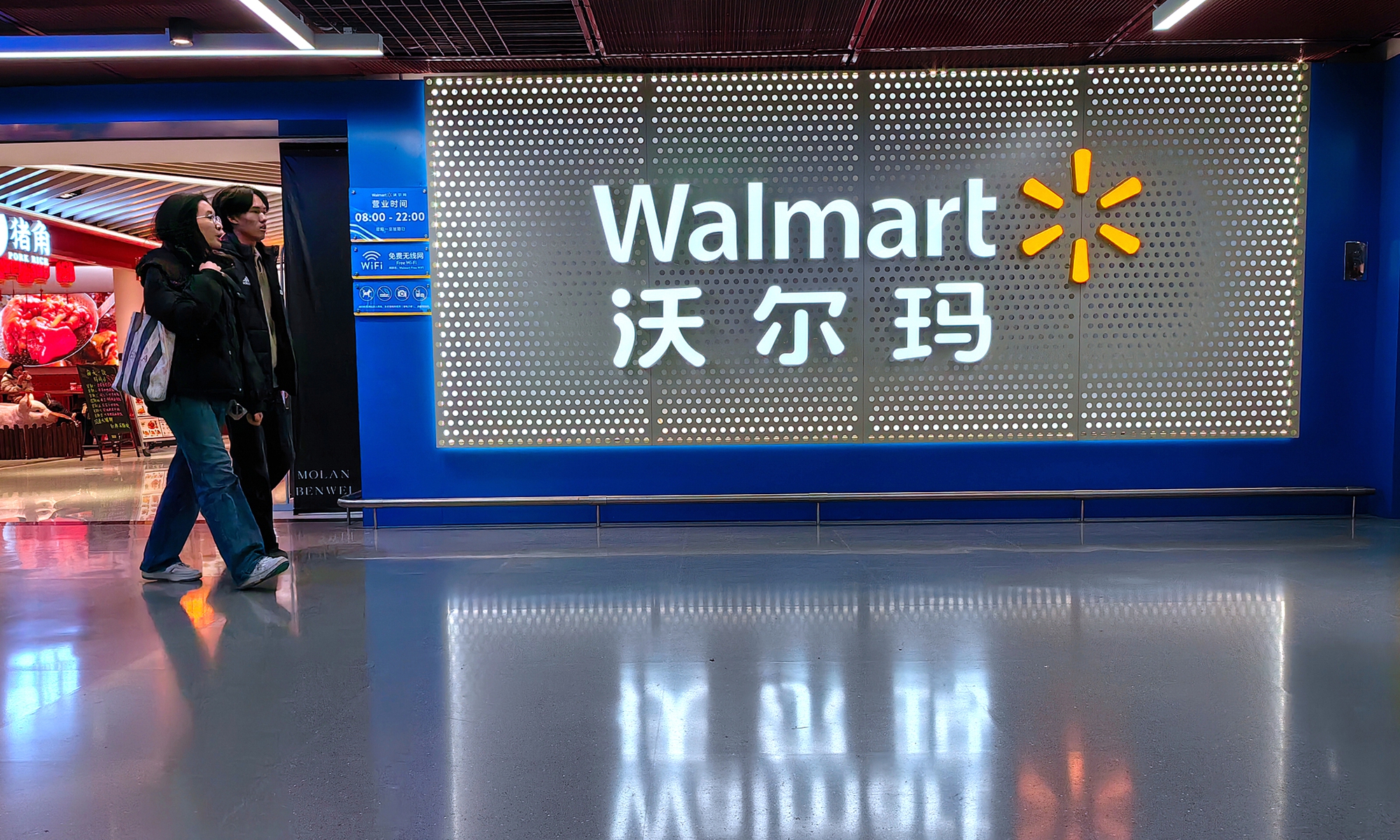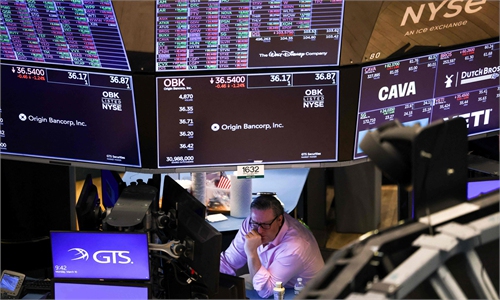Chinese authorities summon Walmart over reported supplier price cut demands: report
Chinese suppliers committed to co-op, but should not bear cost of US tariffs: expert

Walmart Photo:VCG
The Ministry of Commerce (MOFCOM) and other departments summoned Walmart on Tuesday for reportedly requiring some of its Chinese suppliers to slash prices significantly in an attempt to shift the burden of the US tariffs on China to Chinese suppliers and consumers, Yuyuantantian, a media outlet affiliated with China Media Group, reported on Wednesday.
Some suppliers of the US retail giant, including producers of kitchenware and clothing, have been asked to lower their prices by as much as 10 percent per round of tariffs, essentially shouldering the full cost of the US duties, Bloomberg reported on Thursday.
The China Chamber of Commerce for Import and Export of Textiles (CCCT) urged major US retailers to address international trade issues fairly and reasonably, according to a statement the chamber released on Wednesday.
The CCCT has received reports from some member companies that large US retailers are asking Chinese suppliers to lower prices. The chamber is verifying the situation. If confirmed, it will take proactive measures to safeguard the legitimate rights and interests of its members.
The chamber also noticed that MOFCOM and other departments have summoned Walmart to learn relevant situations. The current challenges in international trade stem from the US government's unilateral tariff hikes, which have harmed businesses in both China and the US. The chamber hopes that companies from both countries can resolve shared concerns through friendly negotiations based on equality and mutual benefit, working together to navigate current difficulties and avoiding unilateral actions that leverage market dominance to disrupt supply chain stability, the CCCT said.
Zhou Mi, a senior research fellow at the Chinese Academy of International Trade and Economic Cooperation, told the Global Times on Wednesday that these major US retailers are feeling the pressure of rising costs, which are being passed down from the supply chain to American consumers. As a result, they want to cut costs - but this situation stems from the unilateral tariffs imposed by the US government.
To truly address the root cause, they are suggested to take their concerns to the US government, Zhou said, noting that Chinese suppliers remain committed to maintaining good relationships with US companies, but they should not bear the cost of Washington's protectionist tariffs.
Yuyuantantian noted that the first message conveyed by the talks is that Walmart's unilateral demand for Chinese companies to cut prices could risk disrupting supply chains, harming the interests of both Chinese and US businesses as well as American consumers. About 60 percent of Walmart's globally sourced products come from China.
The second message is that as the unilateral US tariff hikes hurt businesses on both sides, companies from both countries should work together to navigate these challenges, the report said.
China has been a key driver of Walmart's global growth over the past year. In the fourth quarter of its fiscal year 2025 ended on January 31, the US retail giant reported $5.1 billion of net sales in China, surging 27.7 percent year-on-year, according to the company's financial report.
Walmart's comparable sales in the Chinese market grew by 12.5 percent, 13.8 percent, 15 percent and 23.1 percent year-on-year across the four quarters of its fiscal year 2025 - far outpacing its growth in the US market.
During a regular press briefing, a foreign reporter asked the Chinese Foreign Ministry spokesperson to confirm the report from the Chinese media and provide more details if true. Mao Ning, a Foreign Ministry spokesperson, said "I'd refer you to competent Chinese authorities on that," without providing further details.
"Supply chains are complex, [US] retailers continue to engage in diversification efforts. Unfortunately, it takes significant time to move supply chains, even if you can find available capacity," according to a press release from the US National Retail Federation (NRF), citing NRF Vice President for Supply Chain and Customs Policy Jonathan Gold, in responding to earlier inquiries by the Global Times for comment on the possible impact of US President Donald Trump's new tariffs on American consumers and the retail industry.
The proposed tariffs would have a significant and detrimental impact on the costs of a wide range of consumer products sold in the US, particularly on products where China is the major supplier, according to an NRF study released last November.
Foreign Ministry spokesperson Mao Ning also said on Wednesday at the press briefing that China-US trade ties are based on two-way and reciprocal interactions. Cooperation will bring about mutual benefit and win-win, and China will definitely take countermeasures in response to arbitrary pressure.
Chinese Commerce Minister Wang Wentao also told a press conference on March 6 that trade and tariff wars have no winners, and protectionism leads nowhere.
The respective success of China and the US presents each other with opportunities, rather than threats. Bilateral cooperation serves the fundamental interests of both peoples and meets the expectations of the international community, Wang said, stressing that, however, attempts to coerce or blackmail China will not succeed, nor will they intimidate China.



